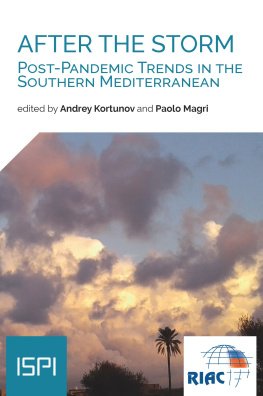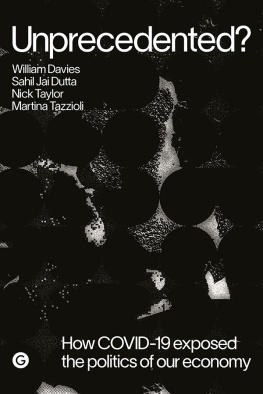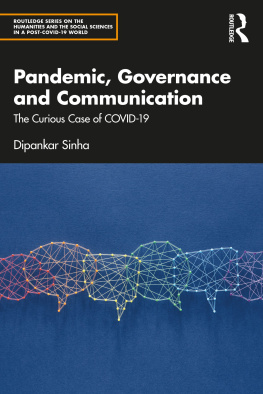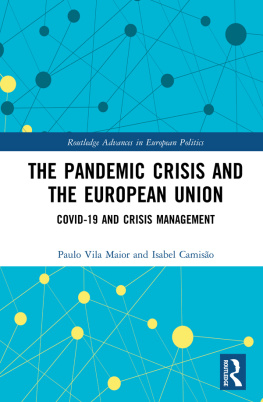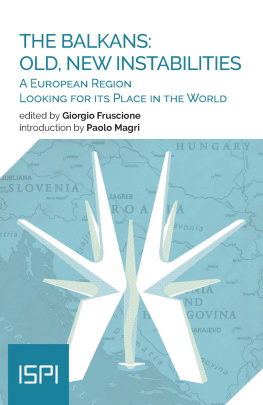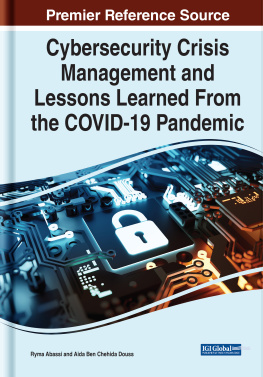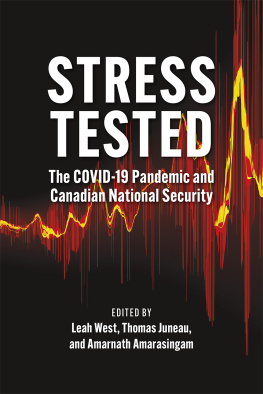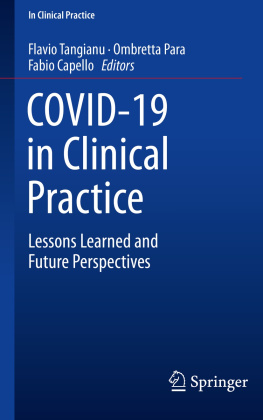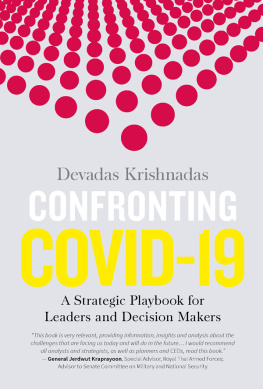2020 Ledizioni LediPublishing
Via Antonio Boselli, 10 20136 Milan Italy
www.ledizioni.it
After the Storm: Post-Pandemic Trends in the Southern Mediterranean
Edited by Andrey Kortunov and Paolo Magri
First edition: December 2020
The opinions expressed in this publication are those of the authors alone and do not necessarily reflect the position of the institutions referred to or represented within this publication.
Print ISBN 9788855263894
ePub ISBN 9788855263900
Pdf ISBN 9788855263917
DOI 10.14672/55263894
ISPI. Via Clerici, 5
20121, Milan
www.ispionline.it
Catalogue and reprints information: www.ledizioni.it

The Russian International Affairs Council (RIAC) is a non-profit international relations think tank on a mission to provide policy recommendations for all of the Russian organisations involved in external affairs. RIAC engages experts, statesmen, entrepreneurs, and members of civil society in public discussions with the aim of increasing the effectiveness of Russian foreign policy. Along with research and analysis, RIAC is involved in educational activities aimed at creating a solid network of young global affairs and diplomacy experts. RIAC is an active player on the public diplomacy arena, presenting Russias vision on the key issues of global development on the international stage.
Introduction
Now more than ever, as the worlds nations grow increasingly interconnected, much of their security and prosperity has also become intertwined. This is why, in considering the larger Mediterranean region, it is only to be expected that stability on its northern shores is more and more connected with stability on its southern shores.
As is well known, the Southern Mediterranean has been a region beset by conflict and instability for the best part of a decade. Since the so-called Arab Spring, longstanding disputes (the Arab-Israeli conflict, the challenging political-religious balance in Lebanon, or the fragile Shia-Sunni compromise in Iraq) have been coupled by instability in countries that had been somewhat stable for much longer such as Syria, Libya, Egypt, Tunisia, and Algeria. Moreover, over the same timespan the Mediterranean region has faced a significant number of challenges that have stemmed from turbulent events taking place on its southern shores: the migration crisis, disruptions of regional value chains, souring regional relations, and foreign power interferences that have severely affected the region as a whole.
As though the regions troubles had not been enough, the spread of Covid-19 across the world in general, and the Southern Mediterranean in particular, has taken a heavy toll. For MENA countries, the global pandemic and its consequences have been a double-edged sword. On the one hand, the virus has exacerbated the unresolved and persistent issues that have unfortunately become a regional leitmotiv: political instability, the lack of employment opportunities, the lack of social reforms, rising poverty, and underdevelopment in general. It has shined a light on the importance of taking action in solving these matters before it is too late, while also reminding countries that developments in regional neighbours can deeply affect their own. On the other hand, as the international health crisis became the top priority for most governments in the region, it also appears to have overshadowed the importance of responding to the very challenges that had been exposed by the Covid-19 emergency.
This Report brings together experts and scholars in an effort to ponder on possible post-pandemic trends in the Southern Mediterranean. The aim is to help readers navigate the future of the Southern Mediterranean region, by offering new insights and guidance to regional and non-regional governments, civil society, and the public at large.
In the first chapter, Ruslan Mamedov retraces how geopolitical and security competitions have evolved on the Eastern Mediterranean region. Over the last year, the author argues, the area has become increasingly important for global transport routes and its growing energy potential. Recent energy discoveries in the Levant Sea raise the legitimate question: which approach will prevail? Will we see cooperation in conflict resolution and in promoting collective security, based on the joint development of natural gas fields, or is competition destined to further complicate the picture for a region already fraught with conflicts?
Ivan Bocharov addresses the future of radicalism and terrorism in fragile countries that is, countries struggling with weak legitimacy and deteriorating governance settings. More specifically, the chapter focuses on Libya by providing a comprehensive overview of recent developments within the country. The author argues that while the pandemic may conceivably have stolen the spotlight from the civil war, and shifted the focus of the international community away from the terrorism threat, the latter has certainly not disappeared. Rather, by fostering radical sentiments, the socio-economic problems resulting from the spread of the virus have created an even more fertile ground for recruitment.
Moving on, Matteo Villa and Elena Corradi examine the impact of the pandemic on migration flows between the two shores of the Mediterranean, and specifically regular and irregular migration from the southern shore towards EU countries. By observing the evolution of migration flows in the Central Mediterranean route particularly, the authors argue that the global health crisis has had the effect of deterring regular migration flows to Europe, while leading to an increase of irregular migration along some Mediterranean Sea routes.
Chiara Lovotti then deals with post-Covid prospects for international cooperation in Lebanon and Syria. Both countries were already in a significantly vulnerable position before the global pandemic hit. On the one hand, having to face a (healthcare) crisis within a (political and social) crisis had severe consequences on the Syrian and Lebanese people. On the other, it also served as a catalyst for cooperation. In light of the urgency of the current situation, the international community has largely opted for solidarity and aid over separation and disagreements. In such a context, avenues for collaboration, although intricate, have multiplied. Convergent economic and political interests have acted as a multiplier for potential partnerships.
In the fifth chapter, Andrey Chuprygin examines the unfolding developments of the conflict in Libya from the perspective of a foreign player: Russia. In a setting similar to that of the Syrian civil war the author makes the argument that, although the pandemic did negatively affect the Libyan population, it was not one of the root causes of the conflict nor did it have a considerable impact on the evolution of the pre-existing crisis. Chuprygin further points out that the primary consequence of the pandemic on Libyas political discourse has been to dramatically stress the humanitarian aspect of civil unrest.

